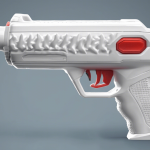Basketball, a sport synonymous with agility, speed, and stamina, demands that athletes maintain peak performance throughout the game. For players to sustain their high level of play, proper hydration and electrolyte balance are crucial. The physiological demands placed on basketball players are immense, and managing fluid intake and electrolyte levels can be the difference between winning and losing. In this article, we will explore how basketball players can effectively manage their hydration and electrolyte balance during intense games to ensure they perform at their best.
The Importance of Hydration in Basketball
Hydration plays a vital role in sports performance, and basketball is no exception. During a high-intensity game, players can lose a significant amount of water through sweat. This loss needs to be replenished to avoid dehydration, which can adversely affect muscle function and overall performance. When players do not consume enough water, their bodies struggle to maintain proper temperature regulation, leading to overheating and increased risk of heat-related illnesses.
Additional reading : What specific stretches can help gymnasts recover from wrist injuries?
Players should not wait until they feel thirsty to drink water. By the time thirst kicks in, dehydration might already be affecting their bodies. Instead, they should develop a habit of drinking water regularly throughout the day, especially before and after training sessions and games. To prevent dehydration, it is essential for athletes to monitor their hydration status. A simple method involves checking the color of their urine – pale yellow indicates good hydration, whereas darker hues suggest the need for more fluids.
Proper hydration doesn’t just involve drinking water — it’s also about consuming the right kind of fluids. Sports drinks can be an effective way to stay hydrated as they replace both water and electrolytes lost through sweat. These drinks provide a balance of sodium, potassium, and other electrolytes, which are crucial for maintaining fluid balance within the body. However, athletes should be cautious about the sugar content in some sports drinks and opt for those with a balanced composition.
Also to read : What are the best strength training exercises for enhancing the power of a tennis serve?
Key Points:
- Monitor hydration status regularly.
- Drink water before, during, and after games.
- Consider using sports drinks for electrolyte balance.
Managing Electrolyte Balance
Electrolytes, such as sodium, potassium, calcium, and magnesium, are essential for numerous bodily functions, including nerve conduction and muscle contraction. During intense physical activity, athletes lose these crucial minerals through sweat, necessitating their replacement to maintain optimal performance and avoid cramps or fatigue.
Sodium, in particular, plays a significant role in maintaining fluid balance. When players sweat, they lose sodium, which can lead to an imbalance and affect their performance. Drinking water alone might not be sufficient to replace lost sodium, making it important to consume electrolyte-rich fluids or supplements.
Potassium is another essential electrolyte that helps with muscle function and prevents cramps. Bananas, oranges, and avocados are excellent sources of potassium and should be included in an athlete’s diet. Additionally, magnesium and calcium are critical for muscle contraction and relaxation, and maintaining their levels is necessary for preventing muscle fatigue and cramps.
Athletes should be proactive in managing their electrolyte balance by consuming a balanced diet rich in fruits, vegetables, lean proteins, and whole grains. This approach ensures they receive a wide range of essential nutrients, including electrolytes, to support their training and recovery.
Key Points:
- Consume a balanced diet rich in electrolytes.
- Use sports drinks or supplements to replace lost sodium.
- Include potassium-rich foods to prevent cramps.
Hydration Strategies During Training and Games
Developing effective hydration strategies is crucial for basketball players to maintain their performance levels. Training sessions offer an opportunity to practice these strategies and understand the body’s hydration needs, which can then be applied during games.
Pre-Game Hydration: Players should start hydrating well before the game. Drinking 16-20 ounces of water two hours before the game ensures that the body is well-hydrated. Additionally, consuming a sports drink 15-30 minutes before the game can help top off electrolyte stores.
During the Game: Continuous hydration during the game is vital. Players should aim to drink 7-10 ounces of water or sports drinks every 10-20 minutes. This routine helps maintain fluid balance and avoids the onset of dehydration. Coaches and trainers should ensure that fluids are readily available and encourage players to take small, frequent sips rather than large gulps.
Post-Game Hydration: Recovery is equally important, and replenishing lost fluids and electrolytes after the game is crucial. Players should drink 16-24 ounces of water for every pound lost during the game. Consuming a sports drink with electrolytes can also aid in faster recovery and help restore the body’s balance.
Training sessions should mimic game scenarios to help players understand their hydration needs. By monitoring fluid loss and adjusting intake accordingly, athletes can optimize their hydration strategies for games. Incorporating regular hydration breaks during practice and using weigh-ins to determine sweat loss can help fine-tune these strategies.
Key Points:
- Hydrate well before the game.
- Drink small, frequent amounts during the game.
- Replenish fluids and electrolytes post-game.
The Role of Nutrition in Hydration and Electrolyte Balance
Nutrition plays a pivotal role in maintaining hydration and electrolyte balance. A well-balanced diet provides the necessary nutrients to support exercise and recovery. Hydrating foods, such as fruits and vegetables, have a high water content and can contribute to overall fluid intake.
Carbohydrates are essential for energy production, and consuming them with fluids can enhance hydration. For example, sports drinks containing carbohydrates can provide both energy and hydration during intense workouts or games.
Protein is vital for muscle repair and recovery. Consuming protein-rich foods after exercise helps in rebuilding muscle tissue and can be paired with fluids to aid in overall hydration. Milk or protein shakes can be effective post-exercise recovery options as they provide both hydration and essential nutrients.
Athletes should also be mindful of their salt intake. While excessive salt consumption can lead to health issues, a moderate amount is necessary to replace sodium lost through sweat. Salty snacks like pretzels or electrolyte tablets can be beneficial for those who sweat heavily.
Maintaining a balanced diet rich in nutrients, staying well-hydrated, and replenishing lost electrolytes through foods and drinks are key strategies for basketball players to ensure peak performance and recovery.
Key Points:
- Include hydrating foods in the diet.
- Combine carbohydrates with fluids for enhanced hydration.
- Consume protein-rich foods for muscle recovery.
For basketball players, managing hydration and electrolyte balance is critical to their success on the court. Proper hydration ensures that players can maintain high energy levels, avoid muscle cramps, and sustain optimal performance throughout the game. By understanding the importance of fluid intake, monitoring hydration status, and replenishing lost electrolytes through a balanced diet and sports drinks, athletes can optimize their performance and recovery.
During intense games, players should adopt effective hydration strategies, including pre-game, during-game, and post-game hydration. Incorporating these practices into training sessions helps fine-tune their approach and ensures they are well-prepared for game day.
Nutrition also plays a significant role, with a diet rich in electrolytes and hydrating foods supporting overall hydration and recovery. By paying attention to both hydration and nutrition, basketball players can achieve peak performance and gain a competitive edge.
In conclusion, managing hydration and electrolyte balance is not just about drinking water; it’s about a comprehensive approach that includes proper fluid intake, balanced nutrition, and effective strategies during training and games. By following these guidelines, basketball players can enhance their performance, reduce the risk of dehydration and cramps, and recover more efficiently.






